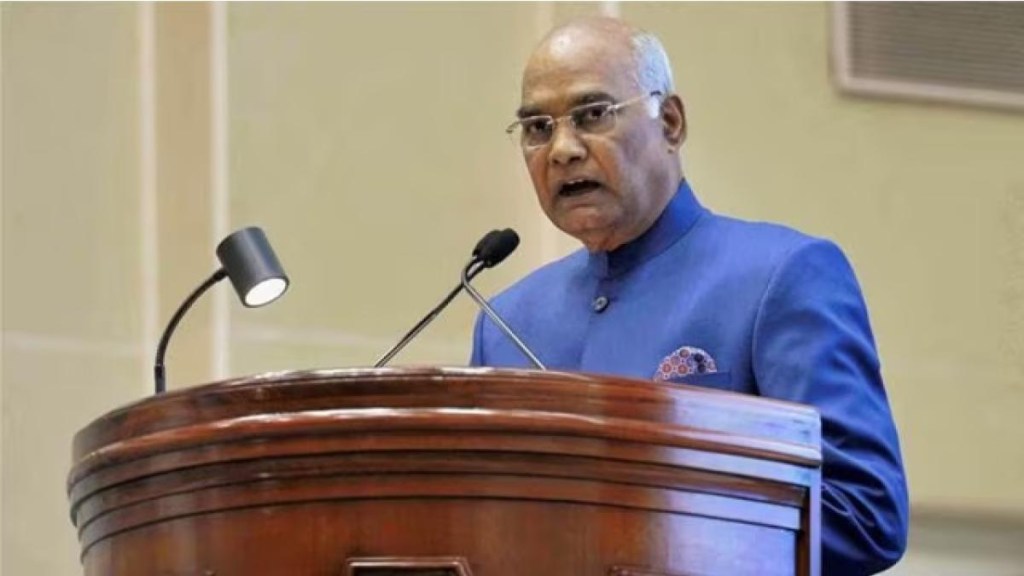Former President Ram Nath Kovind, who headed a panel on ‘one nation, one election,’ on Saturday claimed the idea of simultaneous polls was perceived by the framers of the Constitution and therefore it cannot be unconstitutional.
Kovind highlighted the creation of an “implementation committee” tasked with reviewing the constitutional amendments necessary to realise the concept of simultaneous elections, clarifying that the final decision will rest with Parliament.
While delivering the Lal Bahadur Shastri Memorial Lecture, he pointed out that the first four Lok Sabha and assembly elections were conducted together until 1967. He questioned how the notion of synchronised polls could be labeled unconstitutional.
Also Read: J-K Elections 2024: Whatever the results, control lies with Delhi, says engineer Rashid
Kovind addressed claims that simultaneous elections go against the Constitution, asserting that this idea was actually envisioned by its framers. He pointed out that many institutions, including the Election Commission, have supported this concept over the years.
He argued that holding elections for the Lok Sabha, state assemblies, and local bodies together would strengthen federalism, allowing all levels of government to function in unison for five years. Kovind clarified that the phrase ‘one nation, one election’ has been misunderstood to mean there will be only one election without any follow-ups.
Also Read:Congress flags ‘three dark clouds’ that loom over Indian economy
In his remarks, he shared that 47 political parties provided feedback to the high-level committee he chaired, with 32 supporting the idea of simultaneous elections. Although 15 parties opposed it, many had previously shown their support. He questioned whether that action was in the spirit of democracy.
Recently, the Union Cabinet approved the ‘one nation, one election’ proposal from the Kovind panel, which submitted its report in March. The committee recommended starting with simultaneous elections for the Lok Sabha and state assemblies, followed by local body polls within 100 days, and suggested forming an ‘Implementation Group’ to manage the recommendations.

